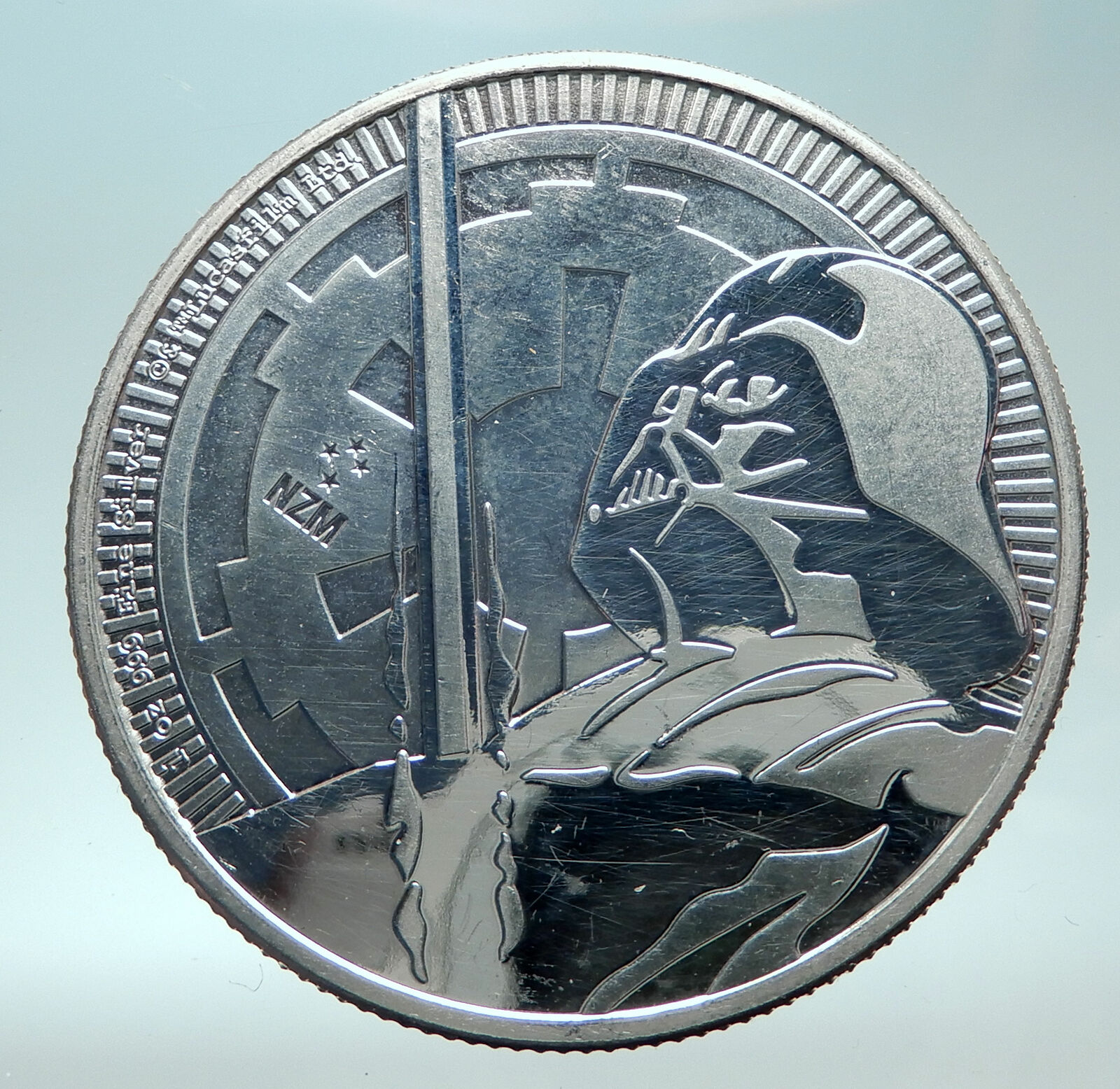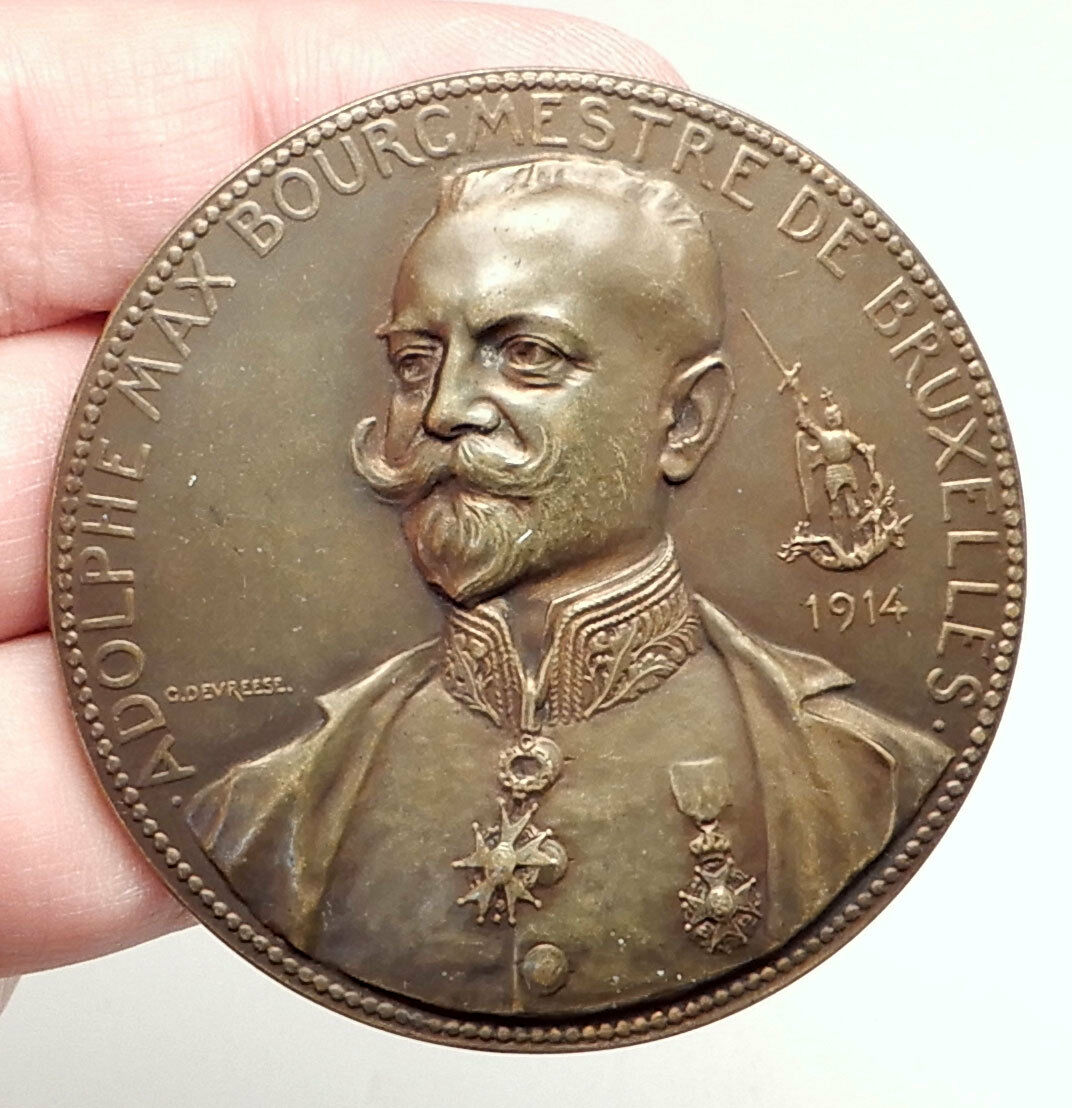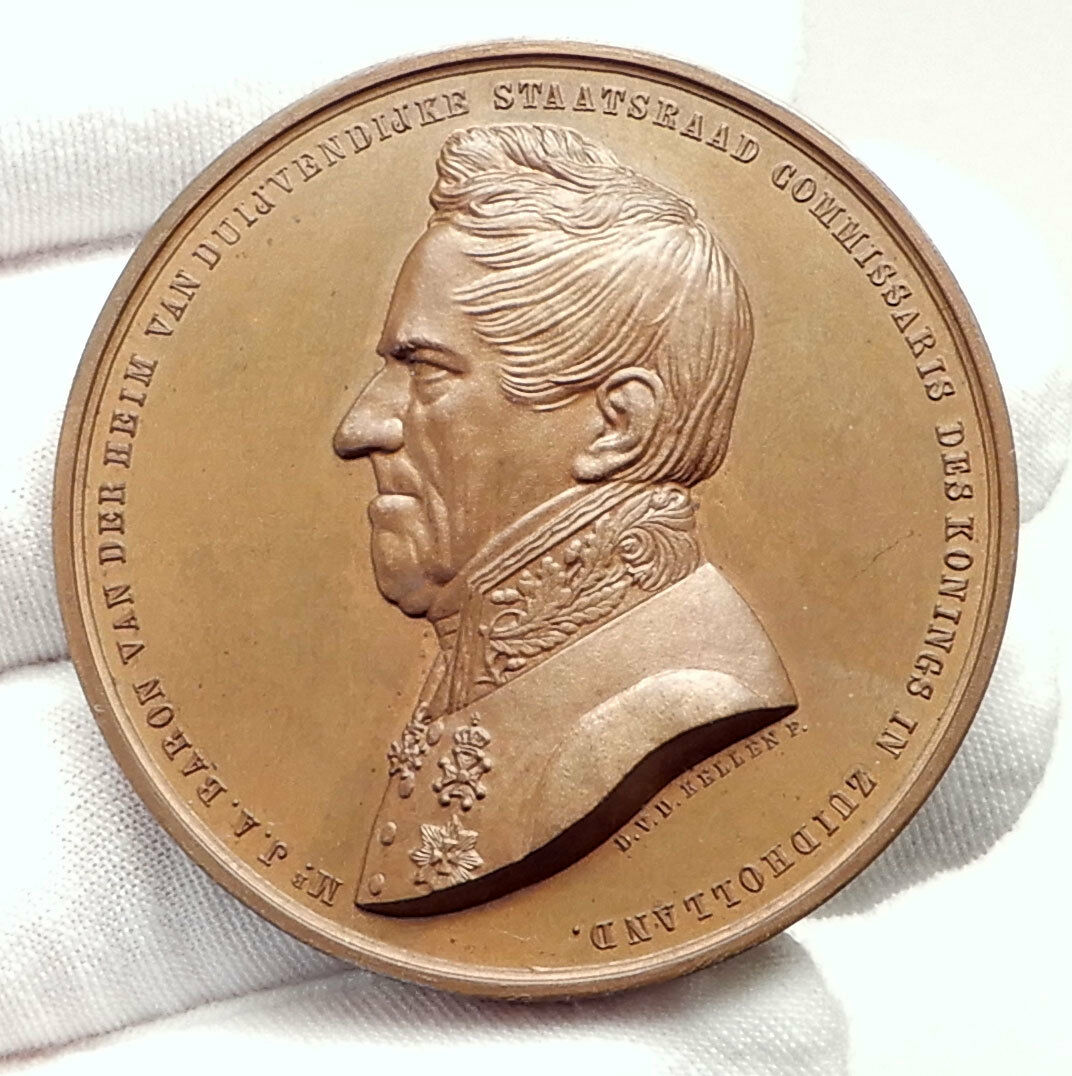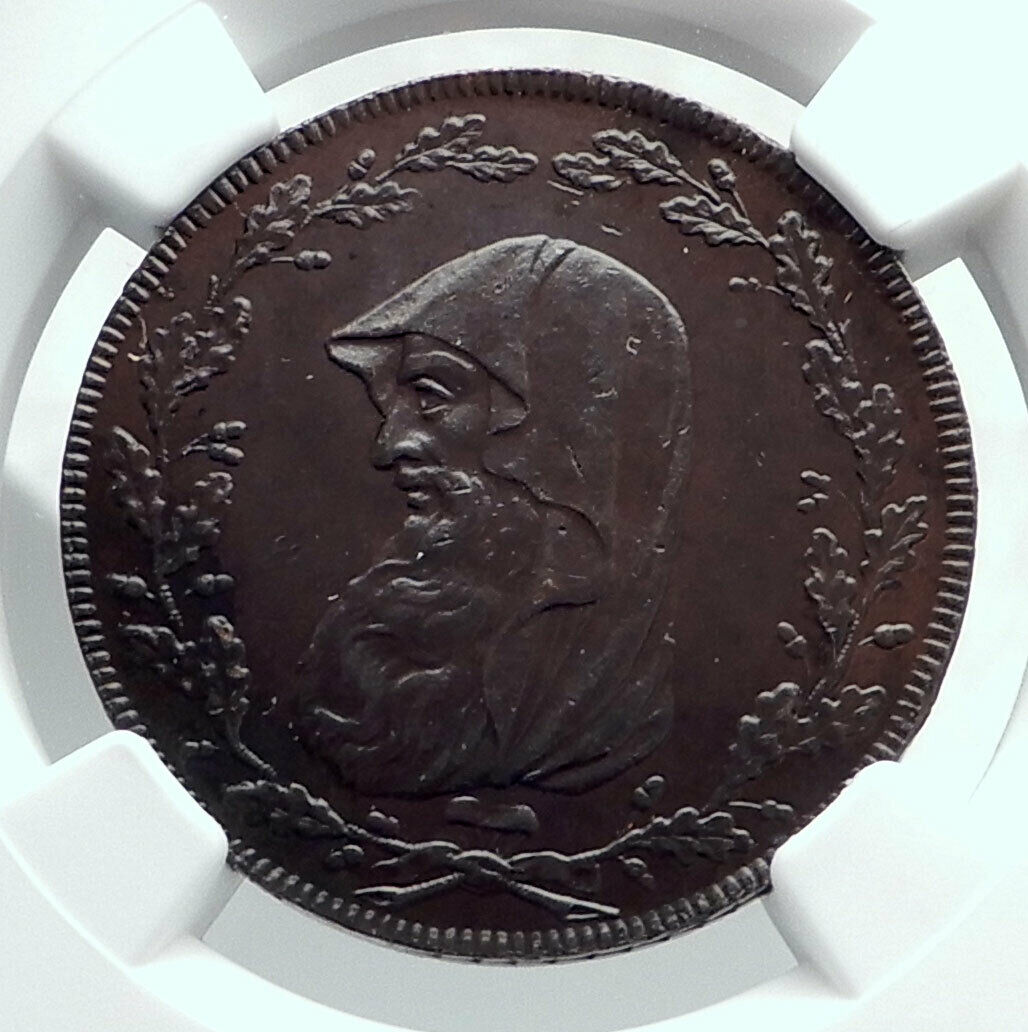|
Vietnam
Heroism Medal
1967-1969 Proof Bronze Ribbon Medal 36mm x 125mm (29.75 grams)
GUAN-CONG ToOUoC TRiAN, Wreath around inscription, Crossed swords over leaf above.
GUAN-CONG VIETNAM CONGHOA 80, Inscription within wreath, pins atop.
You are bidding on the exact item pictured, provided with a Certificate of Authenticity and Lifetime Guarantee of Authenticity.
 Hồ Chí Minh (19 May 1890 – 2 September 1969), born Nguyễn Sinh Cung, also known as Nguyễn Tất Thành, Nguyễn Ái Quốc, Bác Hồ, or simply Bác (‘Uncle’, pronounced was a Vietnamese revolutionary and politician. He served as Prime Minister of North Vietnam from 1945 to 1955 and President from 1945 until his death in 1969. Ideologically a Marxist–Leninist, he served as Chairman and First Secretary of the Workers’ Party of Vietnam. Hồ Chí Minh (19 May 1890 – 2 September 1969), born Nguyễn Sinh Cung, also known as Nguyễn Tất Thành, Nguyễn Ái Quốc, Bác Hồ, or simply Bác (‘Uncle’, pronounced was a Vietnamese revolutionary and politician. He served as Prime Minister of North Vietnam from 1945 to 1955 and President from 1945 until his death in 1969. Ideologically a Marxist–Leninist, he served as Chairman and First Secretary of the Workers’ Party of Vietnam.
Hồ Chí Minh led the Việt Minh independence movement from 1941 onward, establishing the Communist-ruled Democratic Republic of Vietnam in 1945 and defeating the French Union in 1954 at the Battle of Điện Biên Phủ, ending the First Indochina War. He was a key figure in the People’s Army of Vietnam and the Việt Cộng during the Vietnam War, which lasted from 1955 to 1975. The Democratic Republic of Vietnam was victorious against the Republic of Vietnam and its allies, and was officially reunified with the Republic of South Vietnam in 1976. Saigon, the former capital of South Vietnam, was renamed Ho Chi Minh City in his honor. Ho officially stepped down from power in 1965 due to health problems, and died in 1969.
The details of Hồ Chí Minh’s life before he came to power in Vietnam are uncertain. He is known to have used between 50 582 and 200 pseudonyms. Information on his birth and early life is ambiguous and subject to academic debate. At least four existing official biographies vary on names, dates, places and other hard facts while unofficial biographies vary even more widely.
Aside from being a politician, Ho was also a writer, a poet and a journalist. He wrote several books, articles and poems in French, Chinese and Vietnamese.
.svg/125px-Flag_of_North_Vietnam_(1955–1976).svg.png) North Vietnam, officially the Democratic Republic of Vietnam (DRV; Vietnamese: Việt Nam Dân Chủ Cộng Hòa), was a state in Southeast Asia from 1945 to 1954, and a country from 1954 to 1976. North Vietnam, officially the Democratic Republic of Vietnam (DRV; Vietnamese: Việt Nam Dân Chủ Cộng Hòa), was a state in Southeast Asia from 1945 to 1954, and a country from 1954 to 1976.
During the August Revolution following World War II, Vietnamese communist revolutionary Hồ Chí Minh, leader of the Việt Minh, declared independence from French Indochina on 2 September 1945, announcing the creation of the Democratic Republic of Vietnam. The Việt Minh (“League for the Independence of Vietnam”) was a coalition of multiple Vietnamese nationalist groups, mostly led by communists after the reestablishment of the previously banned Communist Party of Vietnam in February 1951.
 France moved in to reassert its colonial dominance over Vietnam which led to the First Indochina War in December 1946, a guerrilla war between France and the Việt Minh. The Việt Minh captured and controlled most of the rural areas in Vietnam which led to French defeat in 1954. The negotiations in the Geneva Conference that year ended the war and recognized Vietnamese independence. The Geneva Accords provisionally divided the country into a northern and a southern zone along the 17th parallel, stipulating general elections scheduled for July 1956 to “bring about the unification of Viet-Nam”. The northern zone was controlled by the Democratic Republic of Vietnam and became commonly called North Vietnam, while the southern zone, under control of the French-established State of Vietnam was commonly called South Vietnam.
Supervision of the implementation of the Geneva Accords was the responsibility of an international commission consisting of India, Canada, and Poland. India represented the non-aligned, Canada the non-communist, and Poland the communist blocs. The United States did not sign the Geneva Accords and stated that it “shall continue to seek to achieve unity through free elections supervised by the United Nations to ensure that they are conducted fairly”. In July 1955, the prime minister of the State of Vietnam, Ngô Đình Diệm, announced that South Vietnam would not participate in elections to unify the country. He said that the State of Vietnam had not signed the Geneva Accords and was therefore not bound by it.
Failure to unify the country by referendum led to the Vietnam War in 1955. The North Vietnamese People’s Army of Vietnam and the South Vietnam-based Việt Cộng guerrilla fought against the military of South Vietnam (by then the Republic of Vietnam) and were backed by their communist allies, mainly China and the Soviet Union. To prevent other countries from becoming communist in Southeast Asia, the United States intervened in the conflict along with other anti-communist forces from South Korea, Australia and Thailand, who heavily supported South Vietnam militarily. The conflict spread to neighboring countries and North Vietnam supported the Pathet Lao in Laos and the Khmer Rouge in Cambodia against their respective US-backed governments. By 1973 the United States and its allies had been forced to withdraw from the war, this left South Vietnam alone and it was swiftly overrun by the superior Northern forces.
The Vietnam War ended on 30 April 1975 and saw South Vietnam come under the control of a Provisional Revolutionary Government, which led to the reunification of Vietnam on 2 July 1976, creating the Socialist Republic of Vietnam of today. The expanded Socialist Republic retained North Vietnam’s political culture under Soviet influence and continued its existing memberships in international organisations such as COMECON.
|




 Hồ Chí Minh (19 May 1890 – 2 September 1969), born Nguyễn Sinh Cung, also known as Nguyễn Tất Thành, Nguyễn Ái Quốc, Bác Hồ, or simply Bác (‘Uncle’, pronounced was a Vietnamese revolutionary and politician. He served as Prime Minister of North Vietnam from 1945 to 1955 and President from 1945 until his death in 1969. Ideologically a Marxist–Leninist, he served as Chairman and First Secretary of the Workers’ Party of Vietnam.
Hồ Chí Minh (19 May 1890 – 2 September 1969), born Nguyễn Sinh Cung, also known as Nguyễn Tất Thành, Nguyễn Ái Quốc, Bác Hồ, or simply Bác (‘Uncle’, pronounced was a Vietnamese revolutionary and politician. He served as Prime Minister of North Vietnam from 1945 to 1955 and President from 1945 until his death in 1969. Ideologically a Marxist–Leninist, he served as Chairman and First Secretary of the Workers’ Party of Vietnam..svg/125px-Flag_of_North_Vietnam_(1955–1976).svg.png) North Vietnam, officially the Democratic Republic of Vietnam (DRV; Vietnamese: Việt Nam Dân Chủ Cộng Hòa), was a state in Southeast Asia from 1945 to 1954, and a country from 1954 to 1976.
North Vietnam, officially the Democratic Republic of Vietnam (DRV; Vietnamese: Việt Nam Dân Chủ Cộng Hòa), was a state in Southeast Asia from 1945 to 1954, and a country from 1954 to 1976.





